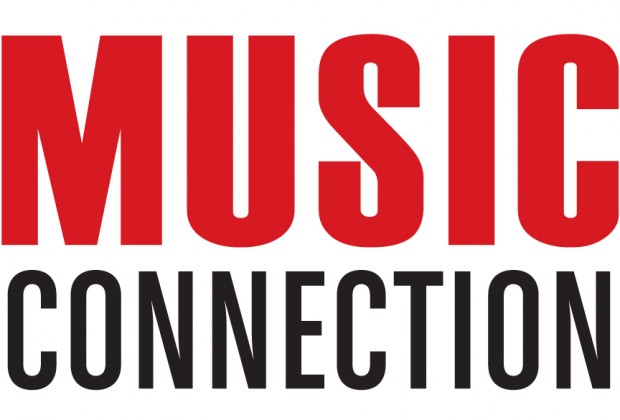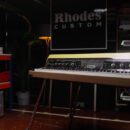
The biggest mistake artists make when it comes to procuring financing for their music ventures is the lack of a business plan. Artists and musicians must understand that music is a business and should run like one. Once you’ve decided that music is your business, you must set aside time to write out a solid business plan if you want to grow as a business, attract investors, increase your fan base, market and sell music or launch a crowdfunding campaign. Here are the essential elements you’ll need to begin your process of establishing a business plan:
1. Write it down (the rough draft)
Whether it’s temporarily written down on a napkin or typed in Microsoft Office, you need to get your plan from out of your head. Start by considering where you are currently in your music career and where you want to be. Give yourself a realistic time frame and work backwards, citing the steps and resources required to reach each milestone in your plan.
2. Take yourself seriously
This is not a joking matter. If you don’t take yourself seriously, no one else will, so include pertinent information regarding your music business. Before you complete your plan, make sure you’ve captured the essence of your music business with the same passion you have for your music.
3. Before you dive in headfirst
Creating a music business plan can be an overwhelming task if you allow it to be. Remember, the only way to eat an elephant is one spoonful at a time, so take a moment to breathe and gather your thoughts.
4. Taking personal and professional inventory
If you have been in the music business for at least a year, you should have a basic idea how a music business operates. In fact, you are most likely implementing core business principles and practices at your current level. Now take it a step further by conducting a SWOT analysis.
A SWOT analysis is a simple assessment of your personal or professional Strengths, Weaknesses, Opportunities and Threats as they apply to your music business. Begin by taking a piece of paper and folding it into four equal squares. At the top of each square going clockwise, write each component of the SWOT analysis in its own square. Then create a bulleted list of all the information regarding your business in the corresponding squares. Once completed, you will have the framework to create a formal business plan.
5. Understand what should be included in your plan
At a minimum, your plan should include the following:
A) Executive Summary - An overview of your company, including an executive summary, mission statement, goals and objectives and a brief artist history.
B) Market Analysis - Here you will analyze the current music market, with special focus on your genre of music. Include opportunities, competitors, trends, market size and growth potential.
C) Company Description - Describe who you are, what you offer and the audience your business serves.
D) Organization & Management Structure - A layout of your organizational structure. Are you an LLC, corporation or sole proprietorship? List the key team players, i.e. management, promotions, legal, accounting, etc.
E) Marketing & Sales - How do you plan to market your music to the consumer (fans)? List your sales, product pricing and positioning strategies, marketing channels, ecommerce and communication strategies, as well as distribution and promotion networks.
F) Products or Services - Explain the music related products and services your business is offering. Are you selling physical CDs or only digital downloads? Are you offering merch for sale such as T-shirts, posters, download cards and stickers? Do you have your own website outside of your social network that also serves as an online store for your music and merch?
G) Funding Request or Needs - How much money do you need to get your operation off the ground? How much will you need for operation costs such as fixed and non-fixed expenses? Are you or your staff taking a salary? What are your costs for manufacturing, distribution and marketing?
H) Financial Projections - How will your music business make money? What are the current and future revenue streams of your business? Be as clear as possible, investors hate ambiguity.
I) Appendix (if needed) - If you already have an existing music business, use this section to add documents such as: revenue model, resume of owners (founders), cash flow statement, income statement, balance sheet and any other information that can help you stay on plan and attract the right people to your business.
6. Writing the plan using a mind map
Just like creating a song, you will never really finish your business plan; you just have to stop and be okay with what you have. A business plan should evolve in sync with your business.
As a creative type, this is probably more than what you signed up for, but I assure you that it is a well worthwhile venture. Begin by creating an outline using the parameters I mentioned early. Some business plans are far more granular than what I have offered here, but use this information as a guide to establish the basic elements.
Artists, start your plan by creating a mind map. A mind map is a diagram that visually outlines information. Draw a circle in the center of a piece of paper and write the main idea or concept in the middle. Use lines to connect smaller circles with related ideas or subtopics. Once you’ve jotted down your thoughts, use the mind map to create an outline.
7. Pulling it all together
Once you have the first draft of your business plan, put it down and walk away for a few days. After a short mental vacation, review your plan and make corrections where necessary. Make sure it is properly formatted and free of errors.
Keep in mind that your music business plan is a living document that will serve as the roadmap for your career, but it should be fluid enough to adjust to changes in the market. Visit my website http://musicbusi nessguruacademy.com/businessplantemplate and download my free Word doc Music Business Plan template.
8. Distributing your music business plan (the final draft)
Once the final draft of your business plan is ready, distribute it across your organization and discuss it. Does the plan provide the reader with the key goals of your business? If so, your business plan can be used to help you launch a crowdfunding campaign, find an investor or take on business partners.
Mini Bio:
SAHPREEM A. KING is a Multiplatinum music producer, DJ, music industry journalist and author of several music industry books, including Dude, I Can Help You! 18 Mistakes Artists Make and How To Fix Them. King has used the knowledge he acquired as an artist, producer and educator to create an online music business course that he will offer from his website http://musicbusinessguruacademy.com in early 2014. He can be contacted at sahpreem@musicbusinessguruacademy.com.












